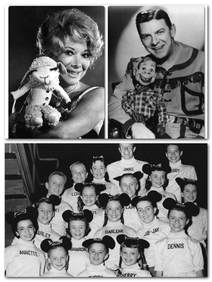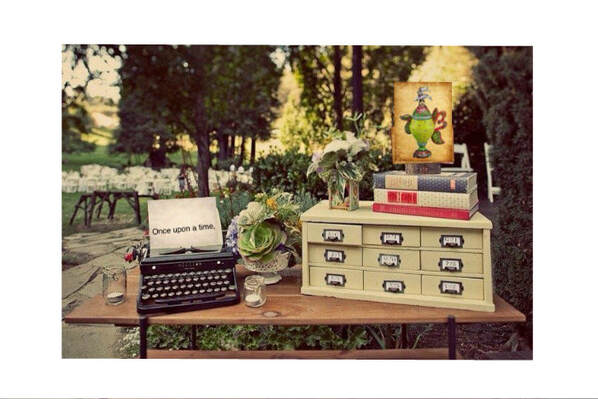 We are a few days past the Summer Solstice, so I thought to myself, “Why not write about summer and pile on what’s already been said?” First, a comment about the solstice. The upside is it has the longest duration of daylight in the year. The downside is that the days have started getting shorter, but you didn’t hear that from me. And, I am done with solstice talk. Did you know there are over 320 songs with the word summer in the title? Yup. It’s true. The only reason I know is because I was looking for a title for this post and discovered that inconsequential bit of trivia. However, you might be able to drop that little fun fact at a party and impress the heck out of everyone, especially if they have had a pop or two or three. My intent was to talk about some standout summer experiences, but I decided to drift along with my stream of consciousness. As I floated down stream, I passed a number of summer idioms. You know, those tired old cliches inspired by summer time, such as: summer winds, summer fling, make hay while the sun shines, fresh as a daisy, soak up the sun, etc. There is one that caught my fancy to the point of needing to know the origin. We frequently refer to the dog days of summer. How did those dog days become such a widespread cultural metaphor? The “dog days,” we think, were those summer days so devastatingly hot that even dogs would lie around on the asphalt, panting. Many people today use the phrase to mean something like that, but originally, the phrase actually had nothing to do with dogs, or even with the lazy days of summer. Instead, it turns out, the dog days refer to the dog star, Sirius, and its position in the heavens. To the Greeks and Romans, the “dog days” occurred around the day when Sirius appeared to rise just before the sun, approximately July 3 through August 11. The dates vary a bit whether using the Gregorian or Julian calendar, but we get the gist. Greek and Roman astrology connected this time with heat, drought, sudden thunderstorms, lethargy, fever, mad dogs, and bad luck. I always find it fascinating to learn how common idioms, cliches, metaphors had their origin. Sometimes it makes you wonder how some of the meanings evolved so far from their roots. I will now continue drifting down stream and wish you much summer fun during these lazy, hazy, crazy days. Soak up some sun. Get your beach on. Enjoy the sun, sand and a drink in your hand. Just don’t forget the broad spectrum SPF sunscreen.
1 Comment
 Mindfulness is a practice that is an important component of achieving and maintaining well-being. You may have heard definitions such as paying attention on purpose, in the present moment, and nonjudgmentally from Jon Kabat Zinn. Or, keeping your attention alive in the present moment from Thich Nhat Hanh. Harvard University professor Ellen Langer, who has studied mindfulness for over 35 years, suggests that being mindful is as simple as noticing new things. Before continuing with mindfulness, let’s talk about mindlessness. I’m not referring to being an airhead or of diminished capacity. It is more the state of being on automatic pilot or reacting based on beliefs or assumptions. When we function on automatic pilot we are not there. And, as Langer says, when we are not there we are not there to know we are not there. I had a recent interaction with someone which prompted me to write about the topic. One morning I phoned my favorite coffee shop to see if they would hold some muffins for me which I would pick up later in the day. The employee asked what kind I would like and how many. When I gave her my order, she paused for a moment. Then she said, “I don’t know if I can put the muffins away for you. People who come into the store for the muffins will be paying for them.” I was silent for a moment as I didn’t believe what I was hearing. Suddenly, the girl came to and said, “Oh, I guess you would be paying for them.” How often have you experienced a similar situation? Or, have you caught yourself doing the same? I sure have. Again, Langer’s remedy for mindlessness or not being there is noticing new things. When we notice new things we become engaged. As we are engaged we are in the present. We begin to see things we did not see before. This opens us up to new information and having an awareness of more than one perspective. A simple example is the green leaves on a tree. Suppose you select one particular tree. You look at it in the morning observing the shade of green of the leaves. As the day goes along, the shades of green change as the sun moves across the sky. Perhaps, the green we were certain of may become uncertain. Thus, we begin to see things we hadn’t seen before. We may have new insights, become more engaged and open to possibilities we hadn’t previously considered. How much fun is that? Who wouldn’t want to discover daily treasures with such a simple tool as noticing new things? If we pause to consider the possibilities, we can get a sense that the benefits to our health and well being are without limit. Comments are welcomed.  Recently, one of my channel surfing expeditions landed on the comedy network. Ellen DeGeneres was doing an observational comedy routine about ‘back in the day.’ A myriad of memories surfaced accompanied by many smiles and the feeling of more innocent times gone by. In the forefront of those images were the early years of TV. My cousin and I lived just a few houses apart. We were the same age and were more like sisters. Her family, being in a higher income bracket than mine, was the first to get a TV. A fancy console at that. Consequently, I spent many Saturday evenings at her house watching the great new form of entertainment called television. My recollection of those early TV days are spotty and not in any chronological order. AS I reminisced, I thought it would be fun to share a montage of these memories. Full disclosure. My recall of the contents of some of the shows was very fuzzy. I did what any resourceful person would do. I checked You Tube for some episodes of those programs. Good Grief! I couldn’t believe I actually watched some of that stuff. But, then, I was a little kid which pretty much explains it all. I remember seeing Beat The Clock. It was a game show in which people had to perform certain whacky tasks in a designated period of time, usually under a minute. I understand that show still exists in about it’s fifth incarnation. When we finally got our TV, my first program was Howdy Doody Time. I could see myself, sitting in front of the TV eating a slice of home-made coconut bread as I watched. How interesting to note the pictures we have in our minds around our memories. Another show I recall was Winky Dink. The only memorable part was the art kit you could get in the mail. It included a plastic sheet that fit over the TV screen. Special crayons and a special wipe cloth were part of the kit. As pictures were drawn on the show, we could trace the drawings on the coated screen. Great fun back then. Certain cartoons appealed to me. Rocky and Bullwinkle Boris and Natasha and Snideley Whiplash stand out. There were a few others like Tom Slick, Fractured Fairy Tales and Mr. Peabody and Sherman. I believe they were also related to the Rocky series. A final mention goes to Kukla, Fran and Ollie, Roy Rogers and Dale Evans, The Lone Ranger and Father Knows Best. Captain Video inspired me to create a space ship from cardboard boxes. My all time favorite even to this day is Leave It To Beaver. Who could ever forget Eddie Haskell? Why not visit the corners of your mind for those misty water colored memories of the way TV once was? Let those memories bring you smiles and moments of happiness in the present. Comments are welcomed.  I read this in a newsletter I get and it struck a chord. It is one of those things that show up and you know that one day the message will be needed. I hope it resonates for some of you, too. “If you find yourself in a challenging situation, one that pushes you beyond your comfort zone. One that stimulates frustration, disillusionment and even despair . . . Take action. Do what you can do. Make the best effort you can make. But don’t be attached to the outcome. In many cases the outcome is beyond your control. So you need to let go of the outcome. It’s out of your hands. Turn the outcome over to God, or Buddha, or Allah, or a Higher Power, or Fate. Your empowerment comes from taking action in the face of despair. Your integrity comes from doing the best you can do. And your wisdom comes from knowing what you can and can’t control (serenity prayer).” By Gregg Krech, the ToDo Institute Comments are welcomed. |
Archives
July 2024
Categories
All
|

 RSS Feed
RSS Feed
